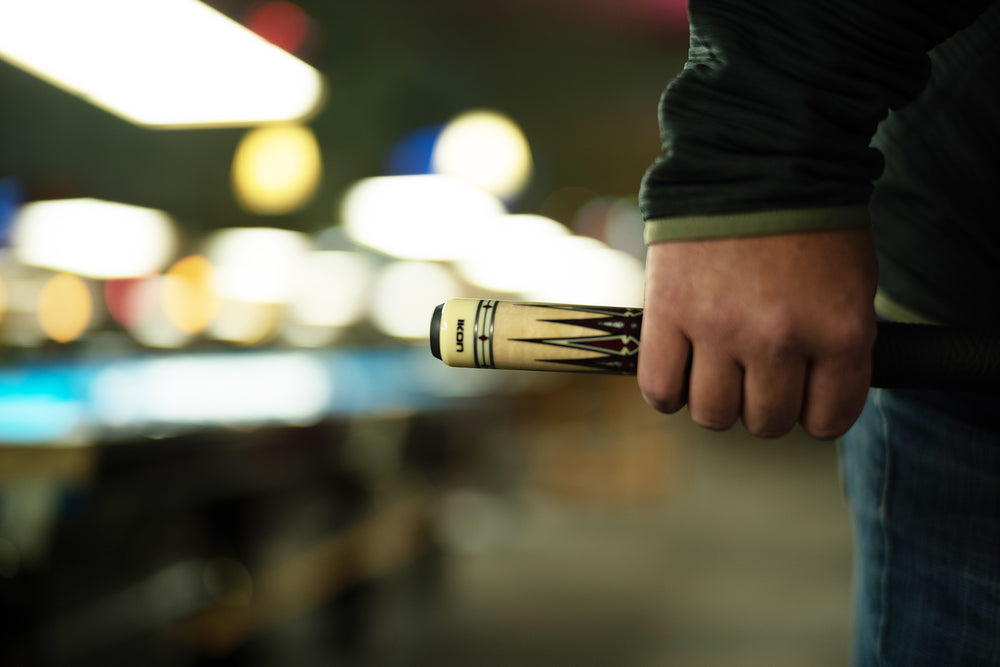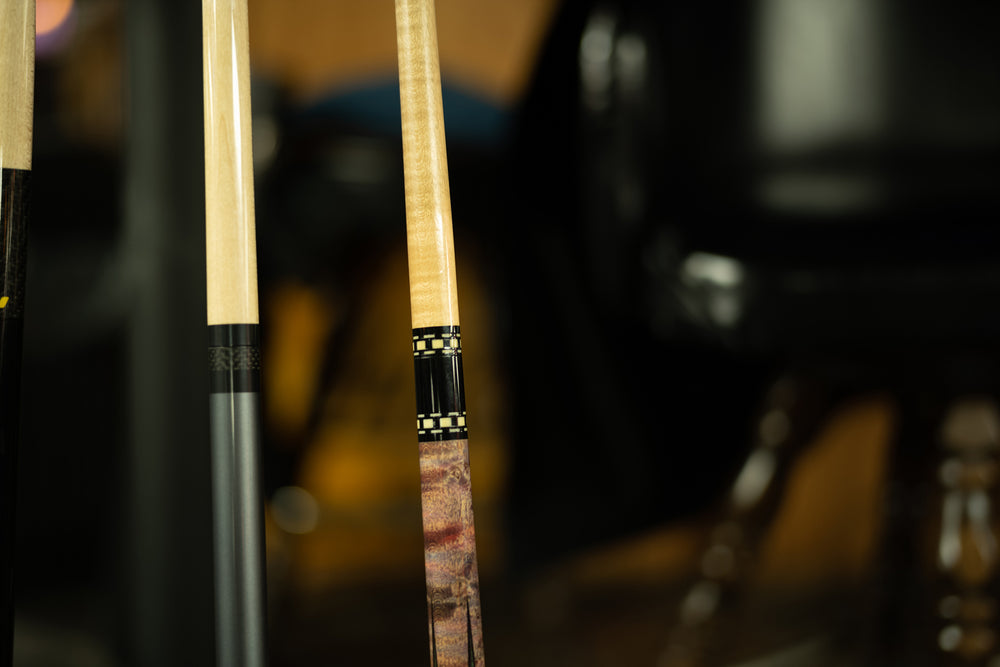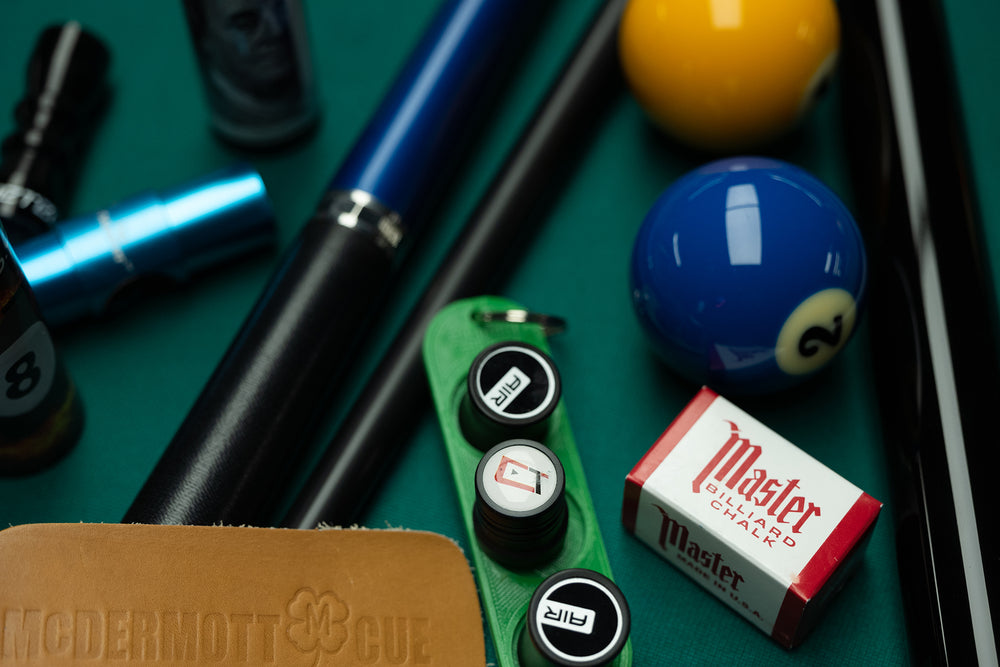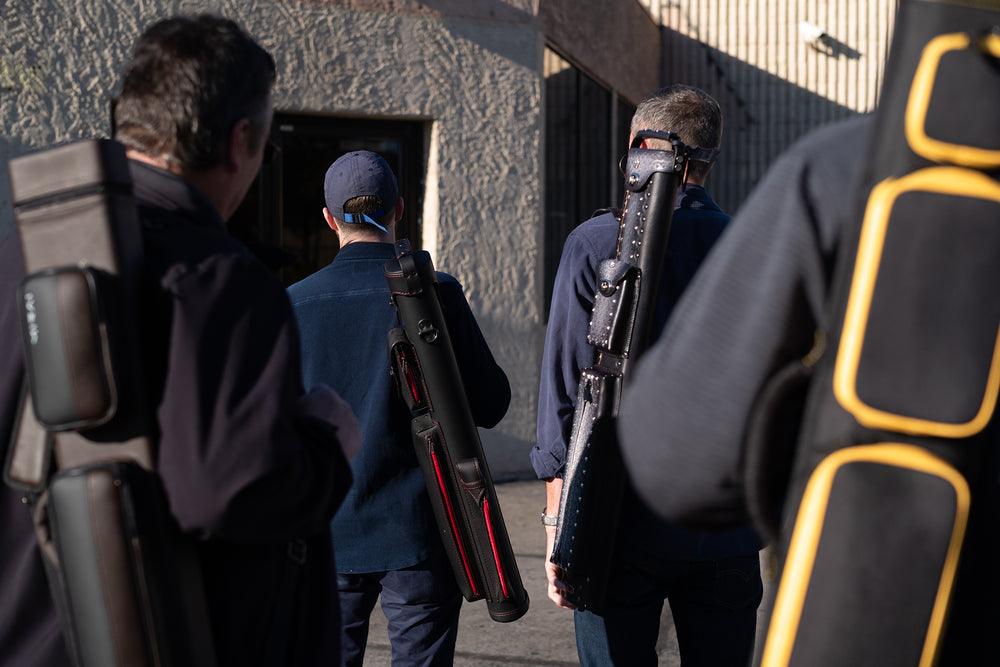
Are Screw-On Pool Cue Tips Good? The Pros and Cons for Different Players
Table of Content
In the precision-driven game of pool, the cue is an extension of the player's skill, and no part is more critical than the cue tip. As the point of contact with the cue ball, the tip's quality can greatly influence a shot's accuracy and spin.
Amid a variety of tips, screw-on pool cue tips have emerged as a popular choice for their convenience and ease of replacement. Designed to be effortlessly attached without glue or professional tools, they offer an accessible option for casual players. But how is their viability?
This article will delve into the world of screw-on tips, examining their merits and drawbacks for players of all levels.
Highlights
- Screw-on pool cue tips provide a convenient, no-glue-needed alternative to traditional cue tips, favored by casual players.
- These tips are easy to install and replace but may not offer the same level of performance and durability as glued-on tips.
- Players must weigh the advantages of convenience against potential compromises in play quality and cue control.
- Alternatives like glued-on leather tips, layered tips, and phenolic tips cater to players with different preferences and skill levels.
- Personal experimentation with different tip types is encouraged to find the best fit for your game.
What Are Screw-On Pool Cue Tips?

Screw-on pool cue tips offer a user-friendly approach to cue maintenance, differing significantly from their glued-on counterparts. They come equipped with a threaded screw that easily attaches to a corresponding insert in the ferrule of the pool stick.
This design simplifies the screw-on tip replacement process, which makes it particularly attractive to players who lack the tools or experience for more traditional methods. As such, it emerged as a quick-fix solution for the casual player that has since risen in popularity due to its convenience.
Available in a variety of materials, including leather and synthetic composites, screw-on tips cater to diverse playing needs and cue styles. They stand out in the billiards supply market for their appeal to players looking for ease and efficiency in their cue setup.
Advantages of Screw-On Pool Cue Tips
Screw-on pool cue tips are known for their convenience, presenting several advantages that appeal to a range of pool players.
- Ease of Replacement: Players can quickly change their cue tips without professional assistance, tools, or glue. This is especially beneficial in moments where a tip needs to be replaced immediately, such as during a game.
- Cost-Effective Solution: For recreational players, the affordability of screw-on tips is a significant advantage. These tips are generally less expensive than their glued counterparts and don't incur additional costs for fitting.
- Variety and Accessibility: Screw-on tips come in various hardness levels and materials, offering players the flexibility to experiment with their playing style. This allows for a personalized gaming experience without the complexity that often comes with more permanent tip solutions.
Screw-on tips provide a practical option for players who prioritize simplicity and convenience over professional-grade equipment. Their unique attributes make them particularly suitable for casual or beginner players who may not be ready to invest in more sophisticated cue maintenance.
Disadvantages of Screw-On Pool Cue Tips
While screw-on pool cue tips offer benefits, they also come with several drawbacks that players need to consider. Below are some of the disadvantages.
- Quality and Performance Concerns: Some players find that screw-on tips may not provide the same level of quality or performance as traditional glued-on tips. This can be a critical factor for those who play competitively or are particular about their equipment.
- Durability Issues: The longevity of screw-on tips can be a point of contention. They may not withstand the same amount of play as glued-on tips, leading to more frequent replacements over time.
- Stability and Fit: There's a potential for screw-on tips to loosen or shift during play, which can disrupt shot precision and cue control. Ensuring a tight fit is crucial, and not all cue ferrules are compatible with screw-on designs.
Prospective buyers must weigh these disadvantages against the convenience that screw-on tips provide. For those heavily invested in their pool game, considering the impact of equipment on performance is essential. Consequently, screw-on tips may be better suited for casual play rather than professional or competitive settings.

Detailed Comparison with Glued-On Tips
Screw-on pool cue tips and traditional glued-on tips cater to different needs within the billiards community. Let's delve into a detailed comparison, breaking down the key factors that distinguish one from the other.
Adhesion and Installation
- Screw-On Tips: Utilize a simple screw mechanism for attachment, making them easy to install or replace without any adhesive or waiting time for drying.
- Glued-On Tips: Require a strong adhesive and proper alignment, with a curing period necessary for the glue to set, which can be a more time-consuming process.
Performance and Precision
- Screw-On Tips: May not offer the same level of shot precision due to potential movement or loosening over time.
- Glued-On Tips: Typically provide a firmer bond and, consequently, greater stability and accuracy, which is crucial for important games at the advanced level.
Maintenance and Longevity
- Screw-On Tips: Can be less durable and may need more frequent replacements, which could be a drawback for heavy players.
- Glued-On Tips: Usually last longer and require less frequent maintenance, offering better longevity for serious players.
Considerations for Choosing Pool Cue Tips
When selecting a pool cue tip, the decision heavily depends on your experience and what you hope to get out of the game.
For instance, beginners may lean towards screw-on tips for their straightforward, user-friendly design, favoring ease of use over intricate customization.
As players develop their skills and become more involved in competitive play, they often gravitate towards glued-on tips that offer greater consistency and durability. These players value equipment that can reliably translate their skill into accurate, controlled shots.
The specific demands of different cue sports, such as snooker, pool, or billiards, can also dictate the choice of tip. Each game may call for a unique balance of hardness and responsiveness from the cue tip to optimize play.
Finally, the tactile feedback from the tip's contact with the ball varies per individual preference, influencing the selection process. This, coupled with budgetary considerations, guides players to a cue tip that best suits their personal playing style and financial limits.
Alternatives to Screw-On Pool Cue Tips
While screw-on tips cater to a specific audience, there are a variety of alternative cue tips that players might explore to enhance their game.
Glue-On Tip
Traditional leather tips remain a popular choice for their classic feel and dependable performance.
They are favored for their durability and the nuanced control they provide players. However, they require more meticulous installation and maintenance. When properly cared for, glued-on leather tips reward players with a consistent performance that can withstand the rigors of repetitive play.
Layered Tips
Layered tips, known for their multilayered construction, provide an alternative for players seeking a balance between hardness and elasticity.
It’s a fairly new tip technology that’s designed for precise shots and are capable of holding their shape and form longer than single-layer tips, meaning they require fewer adjustments and replacements.
Their intricate design allows for a customized playing experience, accommodating individual preferences in cue ball control.
Phenolic and Hard Tips
Phenolic tips are at the other end of the spectrum, known for their extreme hardness.
They are typically used on break cues where the goal is to maximize power without deforming the tip. While not ideal for general play due to their limited control on finesse shots, phenolic and other hard tips excel in their specific role of executing powerful break shots with minimal wear.
Conclusion
Screw-on pool cue tips offer ease and convenience for casual players, allowing for quick and affordable replacements and a range of options to accommodate various styles.
However, they may lack the performance and durability of traditional glued-on leather or layered tips, which provide greater stability and consistency for advanced play.
Ultimately, the choice of tip reflects a player's skill level, playing style, and personal preference, with each type offering distinct advantages to suit different needs in the game of pool.


